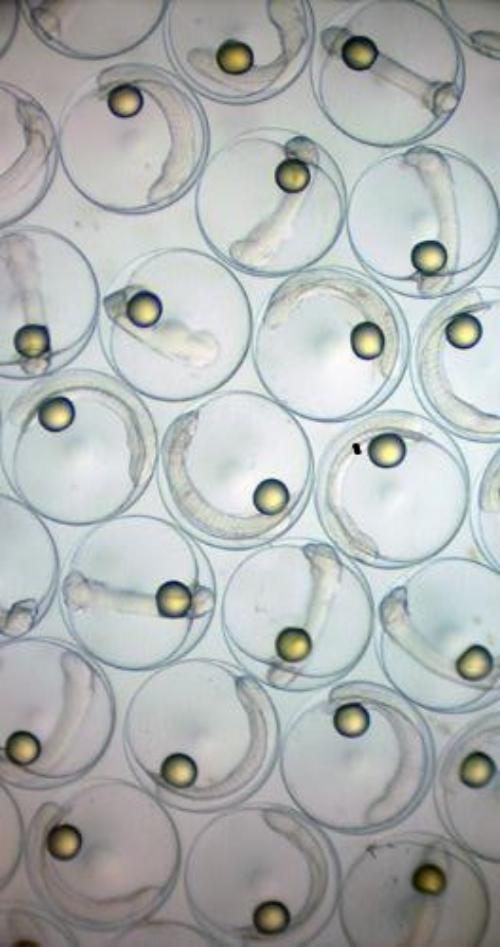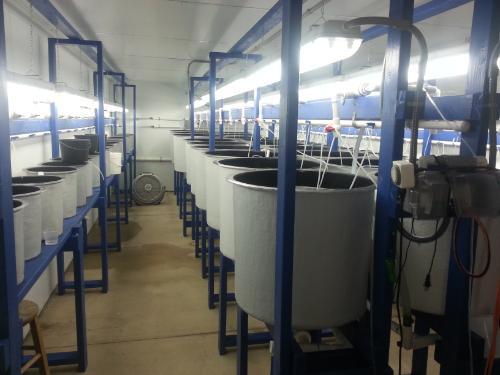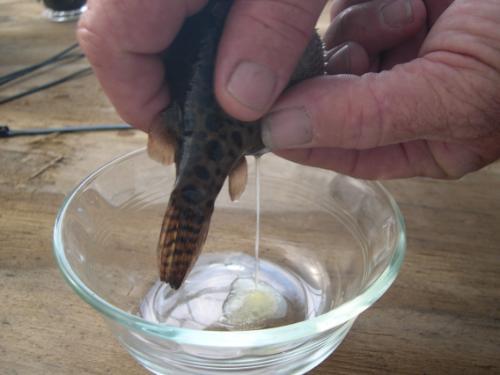Eggs being stripped from a pufferfish

Pacific blue tang eggs developing

Marine larval rearing systems
Aquaculture Production Research
Production of ornamental fish and aquatic plants dominates the aquaculture industry in Florida with a combined $35.5 million in farm-gate sales, comprising 52% of all Florida aquaculture by value in 2012. Ornamental fish production is conducted primarily in small, freshwater, earthen ponds. Increasing restrictions on water usage and elevated real estate prices within the state have resulted in a growing interest in intensification of culture practices (i.e., producing more ornamentals using less water and space). This goal may be obtained by developing alternative culture systems and improving efficiency of culture practices in ponds to increase production per unit volume. Research investigations have included studies aimed at increasing fish yields and overall profitability through changes in feeding and fertilization regimes. Intensive recirculating systems are being used to a greater extent in the industry, but there are significant research needs concerning system design criteria, economics, and feeding practices. Ongoing research efforts in these areas are directed at addressing these gaps in knowledge and facilitating the transfer of this technology to industry stakeholders.
In addition to projects focused on increasing production in various systems, researchers at TAL also seek to evaluate and improve practices for harvesting, grading, holding, and transporting live ornamental fish. Practical improvements in these activities decrease mortalities and result in higher quality fish for producers. Research in aquatic plants has focused on improved propagation methods and pest control and management.
Producers in Florida breed a wide variety of ornamental fish species. Nevertheless, there are many important species that are available only as wild-caught imports or that are commercially produced only outside of the U.S. Researchers at the TAL are working with a variety of these species in investigations of basic reproductive biology, broodstock conditioning, and reproduction through environmental manipulation and induced spawning techniques.
Marine ornamentals (fish and invertebrates such as corals, clams, and snails) is another segment of Florida aquaculture that has helped to diversify the industry and may hold potential for future growth and expansion. Producing marine species in intensive land-based systems has many challenges, including optimization of culture systems, larval culture techniques, nutrition, and many other aspects of captive husbandry. Active research projects focused on addressing these challenges as well as development of domestication protocols for new marine ornamental species are currently underway.

